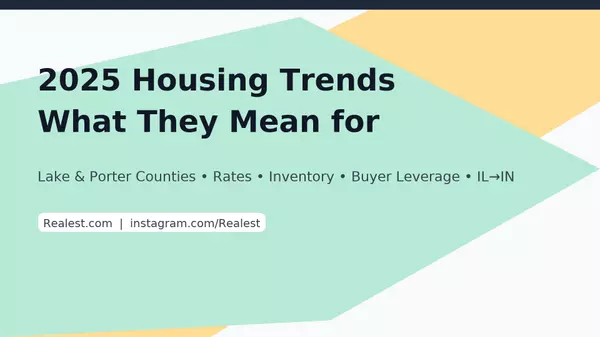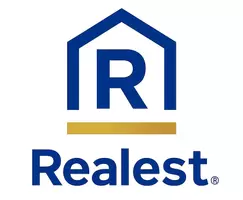Renting VS Buying - Pro's and Con's
Renting vs. buying a home is a major financial decision, and the best choice often depends on individual circumstances, market conditions, and personal preferences. Here's a breakdown of the pros and cons for each:
Renting a Home
Pros:
- Flexibility: Easier to move, which can be beneficial for those with uncertain job situations, students, or those who expect to relocate in the near future.
- Less Responsibility for Maintenance and Repairs: Typically, the landlord is responsible for property upkeep and repairs.
- Predictable Monthly Expenses: Outside of rent increases, monthly costs tend to be more predictable.
- No Down Payment: While there might be a deposit, it's usually less than the down payment required to buy a house.
- No Exposure to Real Estate Market Fluctuations: Renters are not affected by falling property values.
- May Allow for Living in a More Desirable Area: Renting might make it feasible to live in an area where buying would be too expensive.
- No Property Taxes: Direct property tax obligations are shouldered by the homeowner.
Cons:
- No Equity Building: Rent payments don't contribute to owning a part of the property.
- No Tax Benefits: Renters may miss out on homeownership tax benefits.
- Less Stability: Landlords can sell the property, not renew the lease, or raise the rent.
- Limited Customization: Typically, renters have restrictions on how much they can modify or customize the property.
- Potential for Rent Increases: Over time, rent can increase, potentially outpacing inflation.
Buying a Home
Pros:
- Building Equity: Over time, you build ownership in the property, which can be a form of savings.
- Tax Benefits: Homeowners might qualify for tax deductions related to mortgage interest, property taxes, and more (depending on the jurisdiction).
- Potential for Appreciation: Property value might increase over time, leading to a gain upon selling.
- Stability: No need to worry about leases ending or landlords selling the property.
- Freedom to Customize: Owners can renovate, expand, or change the property to their liking.
- Potential for Rental Income: Parts of the property (like a basement or a room) can be rented out for additional income.
- Sense of Ownership and Community: Owning often brings a deeper connection to the community.
Cons:
- Maintenance and Repair Responsibilities: Homeowners are responsible for all repairs, maintenance, and upgrades.
- Higher Initial Costs: Down payment, closing costs, and other initial expenses are typically higher than renting.
- Less Mobility: Selling a home and buying a new one can be time-consuming and costly.
- Risk of Depreciation: Property values can decline due to economic factors, neighborhood changes, etc.
- Potential for Financial Strain: If the market goes down, homeowners might owe more than the house's worth.
- Property Taxes and HOA Fees: Homeowners need to pay property taxes and, in some places, homeowners' association (HOA) fees.
- Interest Payments: A significant portion of the early years of mortgage payments can go to interest rather than principal.
In conclusion, whether to rent or buy is a complex decision influenced by individual financial circumstances, long-term plans, market conditions, and personal preferences. It's essential to assess all factors and consult with financial and real estate professionals when making such a decision.
Categories
- All Blogs (60)
- buyers (6)
- Community & Lifestyle (11)
- first time buyers (8)
- Home Buying Tips (6)
- Home Selling (3)
- homebuyers (9)
- Homeownership & Maintenance (2)
- Join Realest (5)
- Listings (15)
- Local Market Insights (10)
- real estate (11)
- real estate agent (11)
- Real Estate Investing (1)
- Real Estate News & Trends (2)
- sellers (6)
- selling (3)
Recent Posts

Beyond the Flip: Fixer-Uppers, Short Sales & Foreclosures in Northwest Indiana

Why Home Sales Fall Apart — and How to Prevent It in Northwest Indiana

Top 15 Things To Do (and NOT Do) Before Selling Your Home in Northwest Indiana

Top 5 Things to Do Before Buying a Home in Crown Point, Indiana (2025 Guide)

2025 Northwest Indiana Housing Trends | Realest.com Market & Lifestyle Guide

Top 10 Reasons to Buy a Home in Northwest Indiana Right Now

Moving from Illinois to Indiana in 2025: 9 Real Reasons Everyone’s Headed to Northwest Indiana

Real Estate in Northwest Indiana & Chicago (October 2025): 9 Key Trends for Buyers & Sellers

Celebrating Excellence: Elyahu Hits 100% at Realest

Lake & Porter County, Indiana: Local Residential Real Estate Trends for 2025

